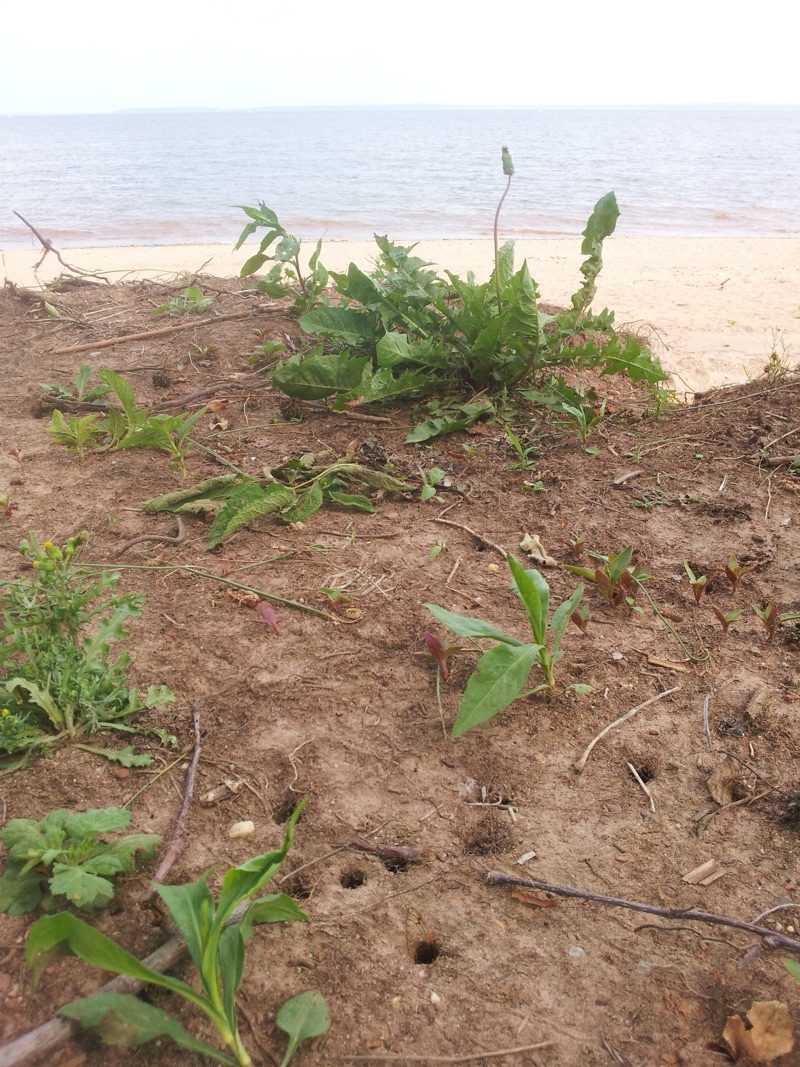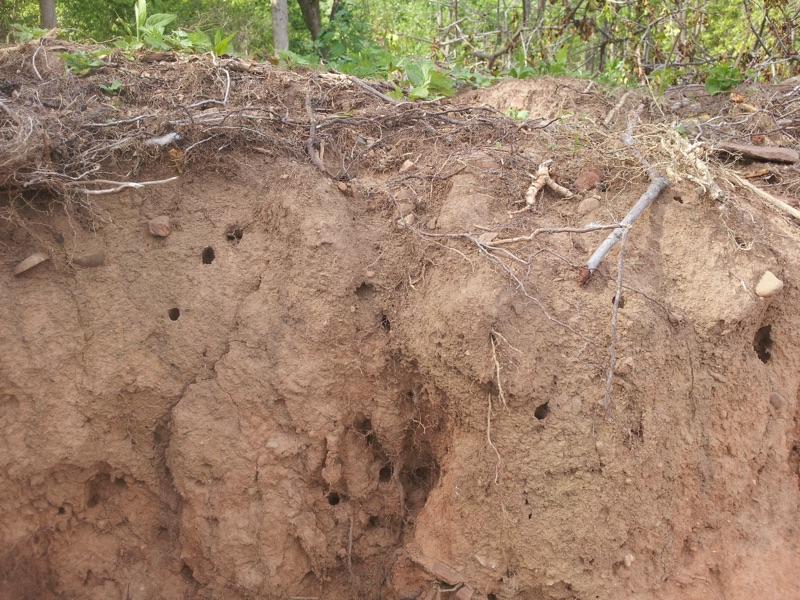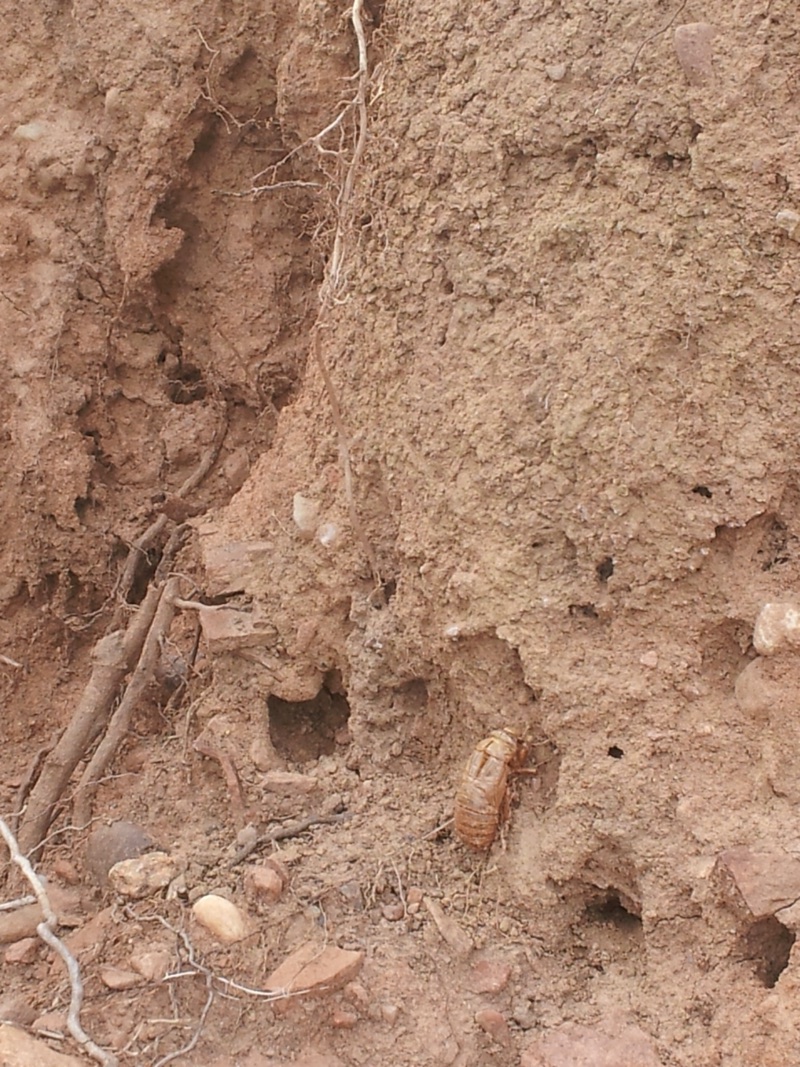Today Elias Bonaros and I surveyed Magicicada populations along the Staten Island shore at Wolfe’s Pond Park. The shore in this area took a serious beating from tropical storm Sandy. Everyone interested in the cicada populations in this area feared the worst for the cicadas. I’m happy to say that many cicadas survived and are currently singing in the location.
What is most amazing is even the cicadas along the eroded shoreline survived. Their exit holes can be seen in the soil along the beach, and even along the vertical face of the eroded soil.

Some video:
More photos:
Cicada holes along eroded shore line:

Cicada hole in eroded shore line with nymph exuvia:

4 replies on “Cicadas, stronger than the storm – Surviving Sandy”
After reading about cicadas, I am curious to know the following: if the 12 year, 14 year and 16 year cicades appear in 2013, after how many years will all three types of cicadas will appear together again. I thought it will be in after 17 years in 2030. Please let me know if this is correct. I’m very interested in finding out this info.
Thanks
There are no 12, 14 or 16 year periodical cicadas — only 13 or 17 year. 17 year broods will never co-emerge. 13 year broods will never co emerge. 17 and 13 year broods co-emerge every 221 years.
Interesting stuff. I found this in Brood XIX in 2011 along the White River. The area had experienced severe flooding during April and early May. But cicadas emerged along the river in areas that had been submerged for several days only a few weeks prior to the emergence. It actually appeared that some of the nymphs actually plugged their exit tunnels to avoid the flood because I visited the area on May 3 just before the emergence, and again on May 11 as the emergence was getting underway, and I found that on May 3 there were many exit tunnels that were plugged with mud, and on May 11 most of those tunnels were vacated and I found lots of cicadas molting that night.
Our beloved cicadas are indeed strong! Great phot Dan! glad to be on site when you were investigating this. As promised here is the reference from over a century ago that shows the hardiness of the underground nymphs! In Marlatt’s book”The Periodical Cicada” printed in 1897, he writes: “a curious feature in connection with the underground life of this insect is their apparent ability to survive without injury in soil which may have been flooded for a considerable period. Dr Smith records a case of this kind where a gentleman in Louisiana in January 1818, built a milldam, thus overflowing some land. In March of the following year the water was drawn off and in ‘removing a hard bed of pipe clay that had been covered with water all of this time some 6 foot deep the locusts were found in a fine, healthy state, ready to make their appearance above ground, that being the year of their regular appearance.’ Another case almost exactly similar is reported by Mr. Barlow. In this instance the building of a dam resulted in the submerging of an oak tree during several months of every summer, ultimately resulting in the death of the tree. This went on for several years until the dam was washed away by a freshet, when digging beneath the tree led to the discovery of the cicada larvae in apparently healthy condition from 12 to 18 inches below the natural surface of the ground. In both of these instances the ground may have been nearly impervious, so the water did it reach the insects nor entirely kill all the root growth in the submerged soil.”